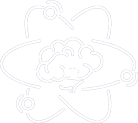Mental health
Performing daily tasks at home and at work can be challenging when dealing with a transient or chronic psychological or emotional disorder. Whatever the origin of the problem (undue stress, trauma, harassment at work, disrupted social circumstances, degenerative or organic disease), essential activities such as getting up, taking care of children, going to work and organizing your day can no longer be taken for granted. This can make us feel like we have lost our sense of direction and balance, in addition to the roles that are dear to us.
In a climate of trust, our occupational therapists quickly identify the main obstacles (physical symptoms and diminished cognitive skills, poor motivation, fatigue, sadness, conflicts, etc.) and their consequences, then help the person to mobilize their resources, their strengths and advance their skills by setting realistic and achievable goals. The occupational therapist in charge mobilizes the person through concrete actions, taking into account their values and interests. For example, strategies for managing emotions and anxiety, and regulating work schedules are taught and put in place.
Our different mental health improvement services
Are mental health occupational therapy services for you?
Our services are intended for:
Individuals aged 18 and over with a mental health problem:
- Adjustment disorders
- Anxiety disorders
- Mood disorders (depression, bipolar)
- Post-traumatic stress disorder
- Personality disorder
- Burnout/chronic fatigue syndrome
- ADHD
- Dependency problem – addiction
- Autism spectrum disorder
- Psychotic disorders
Main referents:
- Physicians and other health professionals
- Insurers
- CNESST
- IVAC
- SAAQ
- Human resources companies
- Unions
- Employee assistance programs (EAP)
We offer consultations for preventive occupational therapy and as part of a rehabilitation process.
Various approaches to improve your mental health
Aptitude Ergo promotes cognitive behavioural therapy, mindfulness, rehabilitation (compensation) and desensitization using solution-oriented approaches. Our strategies are proactive and aim to improve the person’s coping skills, increase overall functioning, well-being, resilience and a return to a healthy, balanced and productive life.
Preventive and proactive mental health occupational therapy consultation
These consultations seek to identify the main obstacles that hinder the individual’s functioning in their work habits and at home. This assessment can be done in the clinic, at the person’s home, on the job or by videoconference.
Consultation objectives:
- Identification of obstacles impacting the person’s autonomy
- Adaptive strategy recommendations to:
- Balance the occupational schedule
- Improve organizational ability in lifestyle habits at home, at school and at work
- Prevent relapses
- Prevent work cessation, maximize recovery and retention
Consultation procedures:
- Interview evaluation, self-administered questionnaires, standardized tests, therapeutic activities, environmental observations, exposure tasks in avoided situations and simulations to determine the functional impact of difficulties or mental health problems in the following:
- General endurance
- Cognitive skills and executive functions
- Social skills
- Mood
- Emotion management
- Problem-solving ability
- Engagement capacity
- Sleep quality and routine
- Unlocking factors to facilitate reintegration into a productive life
Mental health activation program (following work cessation)
Following a work cessation, the occupational therapist explores the activities and environment in which the person with a mental health disorder works in order to build an individualized and well-adjusted intervention plan.
Our occupational therapist uses the person’s meaningful activity as a therapeutic tool, based on a preferred approach chosen according to needs and the problem. The person’s mobilization process can be carried out in our clinic, in the person’s home, on the job and by videoconference. Where appropriate, a workplace visit may be conducted to assess the requirements and skills required to facilitate a return to work.
Occupational therapists at Aptitude Ergo also have advanced training assisting people with an anxiety disorder or post-traumatic stress disorder that enables them to build a personalized in vivo exposure plan and track it. Our concerted, experiential approach to the environment reduces the vicious circle of avoidance. It is highly effective and allows the person to regain confidence in their abilities and resume a meaningful and productive life.
Our occupational therapist uses the person’s meaningful activity as a therapeutic tool, based on a preferred approach chosen according to needs and the problem. The person’s mobilization process can be carried out in our clinic, in the person’s home, on the job and by videoconference. Where appropriate, a workplace visit may be conducted to assess the requirements and skills required to facilitate a return to work.
Occupational therapists at Aptitude Ergo also have advanced training assisting people with an anxiety disorder or post-traumatic stress disorder that enables them to build a personalized in vivo exposure plan and track it. Our concerted, experiential approach to the environment reduces the vicious circle of avoidance. It is highly effective and allows the person to regain confidence in their abilities and resume a meaningful and productive life.
Program objectives:
- Improvement of overall functioning, life habits at home and at work
- Reappropriation of the power to act and decision-making in the different spheres of life (personal, family and professional).
- Balance and better regulate the work schedule
- Improvement of organizational capacities within life habits at home, at school, at work.
- Optimize communication skills, interpersonal effectiveness, social participation.
- Evaluate, reactivate cognitive skills, teaching adaptive and compensatory strategies.
- Teaching and integrating activities, emotion and stress management strategies to build resilience and well-being
- Teaching problem-solving skills
- Development of physical capacities (endurance and energy)
- Integrate and understand the protective factors to prevent relapses
- Prepare and agree on a return to work plan from a recovery perspective
- Achieve a safe and lasting return to work
Program procedures:
- Evaluation and improvement of the functional impact of the mental health disorder and intervention plan
- Assessment of occupational performance according to the environment (personal, domestic, performance and barriers at home, in the neighborhood and at work)
- Evaluate and improve commitment to routines, healthy lifestyle habits
- Teaching strategies to maximize resilience, cognitive skills (e.g., attentional skills, executive functions), social skills, energy, sleep and general physical abilities
- Teaching and integrating emotion and stress management strategies (e.g. stress response education, basics of cognitive-behavioral therapy and cognitive reframing, cardiac coherence, simple meditation techniques, mindfulness)
- Reconnect with meaningful activities, strengths, talents and leisure that has been abandoned
- Assess barriers and strengths to facilitate workplace reintegration
- Clinic, company and videoconference follow-ups are available
Additional services:
- Adapted physical training program with an occupational therapist or kinesiologist (gym and/or pool). The kinesiology follow-up is carried out on-site in a fully-equipped sports center thanks to our partners at Gravi-T;
- Follow-up in psychology;
- Follow-up in massage therapy;
- Follow-up in acupuncture;
- Follow-up in vocational guidance.
Reintegration plan and follow-up
The person with a mental health disorder is assessed during their work activity. Through an analysis of the work activity and self-administered questionnaires, the occupational therapist identifies obstacles and levers that hold the person back or that create the necessary flexibility to return to work successfully.
Through a concerted approach with the worker, the insurer, the employer and, where applicable, his/her union, the work process is planned while taking into account the functional capacities and, if applicable, the functional limitations of the individual.
Through a concerted approach with the worker, the insurer, the employer and, where applicable, his/her union, the work process is planned while taking into account the functional capacities and, if applicable, the functional limitations of the individual.
Plan objectives:
- Highlight the demands of the workstation’s mental workload and cognitive requirements, adaptive recommendations if required
- Build and draft a concerted reintegration plan with the extended team, realistic and achievable
- Occupational timetable balance
- Improvement of capacities to organize and prioritize within the prescribed activities
- Optimize communication skills, interpersonal effectiveness and social participation
- Cognitive skills, adaptive and compensatory strategy
- Integrate concrete emotion management strategies
- Ability to solve problems
- Relapse prevention
Plan procedures:
- Weekly follow-up (phone, clinic or work)
- Work activity assessment (mental load, organization, cognitive skills required)
- Evaluation of general endurance and day-to-day recovery
- Healthy lifestyle habits (protective factors) maintenance
- Return to work plan adjustments based on capacities and performance
Company training and workshops
We offer personalized training in corporate mental health. The training can be presented as a workshop or conference (variable duration from 60, 90 minutes to a full day). The courses include theoretical elements that are interspersed with practical exercises and concrete examples. The workshop-style training features practical exercises that develop a sense of observation and workplace practices, facilitating integration and change.
Here are some training courses offered in mental health occupational therapy:
- Training to equip managers during the reintegration of workers with a CMD (Common Mental Disorder)
- Workshop on stress management, priority management, resilience and work/life balance
- Training on post-traumatic stress disorder (PTSD) and effective and evidence-based approaches to facilitate pre-injury return to work
- Training: Deliver us from harm; understanding the benefits and harms of persistent pain medication
- Conference and kiosk during SST day
Questions about occupational therapy applied to mental health?
If you have any questions about our services or approaches to improving your mental health, don’t hesitate to contact our qualified team.
Always ready to listen, we will support you on the road to recovery.







